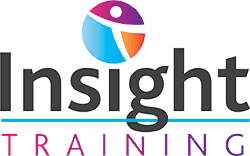2 Jobs Where You Can Make a Positive Impact on Children and Youth

Some people have a natural affinity to teach or help others. Caring-types are naturally empathetic and practical; want to make a difference, and ensure that the children and young people they care for will thrive as they develop.
Jobs such as childcare worker and youth worker are meaningful jobs that enable you to either shape young minds or assist in helping young people persevere through difficult situations. Both careers are about supporting young people to thrive as they go through key developmental stages and challenges.
Childcare and education worker
Childcare workers and educators care for and supervise young children in for-profit and non-profit venues such as childcare centres, daycares, kindergartens, and crèches. They provide opportunities for children to learn and play in a friendly, supportive environment that’s sensitive to their developmental needs.
Key responsibilities of childcare workers include:
- Providing physical, emotional, and educational support for children and toddlers under your care.
- Preparing and delivering activities, games, meals and snacks.
- Playing with and interacting with children, or supervising other staff while they work with kids.
- Making sure the environment is safe and fun.
- Working as part of a team with other staff, and providing feedback to parents about their kids.
Industry statistics
Childcare workers get paid an average hourly rate of $23 and salaries between $29-54k. Salaries go up as you accrue experience and earn higher qualifications.
Childcare and education work is a huge industry! It currently employs over 150,000 Australians with 17% growth in staff numbers over the last 5 years. The growth rate is attributed to increasingly more women returning to work after having a baby as well as recent government regulations to increase the ratio of childcare workers to children.
This means that childcare workers are in high demand and that you’ll have more time to interact with each child under your care.
projected job growth in the next five years
median full-time non-managerial salary in australia
The ideal candidate
To become a childcare worker you’ll need, at a minimum, a Certificate III in Early Childhood Care, Childhood Education, and/or Children’s services (which will take 6 months full-time).
Other great course options include Diploma and Bachelor degree qualifications in early child development. You’ll also be required to have pediatric first aid training.
What kind of person would thrive in this role?
An ideal childcare worker will also have the following skills and traits to thrive in the role:
Kids are fun and brimming with curious questions and unique personalities. But they can also be frustrating, and sometimes gross.
Being a childcare worker will involve dealing with tantrums, arguments, and dirty nappies – you need to be prepared to deal with the highs and lows of working with children.
You may need to ask a child to do things many times before they do it, or you might find some children will have persistently challenging behaviours, will do things slowly or get distracted, or will persistently struggle with the same thing.
It’s important to keep patient as you continue to help them do things that are difficult for them.
A surprising amount of paperwork needs to be filled out each day. Attendance and pick-ups need to be recorded, as well as details of any incidents.
Children can get up to all sorts of mischief the instant your back is turned. To be an effective childcare worker, you need to be able to keep a clear eye on what everyone is doing.
Clear communicator. Kids often need things explained to them multiple times for it to make sense, you need to use a vocabulary they understand and give instructions they can follow.
As well, you have to be good at communicating with parents and other staff for things to run smoothly and to ensure child welfare is upheld.
Childcare work has a range of benefits, but nobody goes into the industry for the money – you’ll need a genuine interest in children’s wellbeing. You’ll also need to be able to stay cheerful, encouraging, and motivated through daily challenges.
A flexible, high impact career
Working with children can be challenging, but rewarding too. You can see them learn and grow; reach important milestones like writing their own name, or learning to tie their shoes; you play a vital role in the lives of children. Often both the kids and parents will let you know that they’re grateful for the work you do.
Childcare workers also play a huge role in shaping Australian society. You allow parents to return to their careers knowing their child will be safely looked after, and the work you do will have a positive impact on educating the next generation.
On top of the job satisfaction, childcare work allows good work/life balance – around half of the workers are employed part-time, meaning that they can spend time with their own families too. There are also many job opportunities as the demand for childcare workers increases.
Youth worker
A related field to social work, youth workers help young people going through a difficult time by providing them with practical advice and emotional support. You can work in a range of settings, including community services, primary and secondary schools, the criminal justice system, and the housing system.
Key responsibilities of youth workers include:
- Meeting with young people – either individually or in group settings – to understand what’s going on in their lives, and what their needs are.
- Making sure young people are safe, which may involve connecting them with food banks, welfare services, or accommodation.
- Providing crisis counselling and early intervention support.
- Helping young people set and achieve their goals.
- Making sure that the young person has a support network in place, including family, friends, teachers and schools, healthcare professionals, family therapists, social workers, and government agencies.
- Monitors the progress of the young people they work with, ensuring their ongoing wellbeing and increased quality of life.
Industry statistics
There has been strong growth in the number of youth workers over recent years as governments are increasingly trying to support public health, particularly the mental health of the population. Youth workers earn an average salary of between $33-70k.
projected job growth in the next five years
median full-time non-managerial salary in australia
The ideal candidate
Typically, youth workers require vocational training such as a Diploma or Certificate IV in youth work, which takes 1-2 years to attain. About a third of Australian youth workers hold a bachelor’s degree, though not necessarily in youth work. Those who already hold qualifications may be able to enroll in a graduate diploma or master’s degree in the field.
What kind of person would thrive in this role?
An ideal childcare worker will also have the following skills and traits to thrive in the role:
You’ll need to be able to listen to what young people are telling you and respond in empathetic ways to help build trust and rapport.
Youth workers provide practical solutions to problems young people have in their daily living, including issues with accommodation, school, family, and friends. This may involve integrating with occupational therapists and social services.
Sometimes young people don’t mention challenges they’re facing or maybe introverts who feel shy about speaking up. But you can use your skills to tell when something is off, ask the right questions, and investigate further.
Burning out is a potential pitfall of this career path, especially if you’re dealing with a lot of frustration, and perhaps lower pay than you’d like. Remembering why you went into the career, and finding new ways to feel enthusiastic and passionate about your work is important for long-term sustainability.
You’ll act as a major resource for the young people you’re working with, so it’s important they feel they can speak honestly to you about issues that they’re having without being judged.
When a crisis occurs you need to be able to respond to emergency calls in a constructive way, helping to steady the young people you’re working with through hardships such as mental illness, problems at home and school, and encounters with the justice system.
Some of the young people you’ll be working with will be affected by trauma, mental health issues, or substance abuse, which may make it difficult for them to make positive choices or be particularly engaged. It’s important to not take this personally and to keep helping, even if you’re not getting immediately positive results.
You’ll need to take notes in your meetings with young people and ensure your files on them are up-to-date and kept confidential. You may be playing a role as part of a young person’s overall treatment plan, which may require sharing records with psychologists, or medical doctors.
A rewarding, varied role
Although youth workers interact with young people who are often at crisis points in their lives, youth work can be rewarding. You can make a quick, practical impact in a young person’s life by finding them a safe place to sleep and making sure they have their next meal.
You’re also involved with helping young people achieve their goals and making positive changes at a time in their life where you can start to see the longer-term results. Be it through witnessing them become more engaged at school, or make decisions about their future careers after high school.
Every young person is different and faces different challenges, so your strategies as a youth worker will change, and the problems you’ll help to solve will be different each day. It may require some creative or lateral thinking to help a young person through their specific situation.
Many of the young people you work with may have received limited support before – they may have been written off, abused, or neglected. Giving them resources and coping strategies as they go through their adolescence and embark on their adult lives can offer them something unique and valuable, changing the course of their life in a positive way, and redressing some of the unjust mistreatment they’ve received.
Passionate about shaping young lives?
Children and young people have a huge amount of opportunities open to them and ensuring that they’re cared for and that their wellbeing is maximised allows them to take them up and thrive through the rest of their lives.
The rewarding careers of childcare and youth workers provide some of the most meaningful ways to foster positively impact young people’s lives.
Browse Results
Diploma of Nursing (SA & WA Only)
Build a meaningful career that makes a difference with the HLT54121 Diploma of Nursing. This nationally recognised qualification provides the essential skills, knowledge, and practical training needed to become a qualified Enrolled Nurse in Australia....


Graduate Diploma in Management
The Graduate Diploma in Management is an online postgraduate qualification that is ideal for busy senior managers, with a potential entry pathway through any of our Graduate Certificates and study that is highly supported, fits into your schedule, and...

Graduate Certificate in Management
The Graduate Certificate in Management is an online postgraduate qualification that is designed for newer and ambitious professionals, with entry possible through management experience alone and a study structure that easily accommodates full-time work...

Associate Degree of Sport Business (NSW Only)
Get a higher education qualification in two years when studying full-time! Based on the Bachelor of Sport Business in terms of content, the Associate Degree of Sport Business offers students the opportunity to get into the workforce quicker or alternat...

Bachelor of Dance Education (NSW Only)
The Bachelor of Dance Education is a unique specialist professional qualification and is Australia’s first–being delivered through ACPE! Units are provided by highly qualified and experienced professionals, empowering you with all the knowledge and ski...

Bachelor of Dance Practice (NSW Only)
The Bachelor of Dance Practice is a specialised degree that will equip you with the skills and experience to become a professional in the dance industry. The course develops artistry, choreography, performance, educational, business, and organisational...

Bachelor of Education (Physical & Health Education) (NSW Only)
The Bachelor of Education (Physical & Health Education) incorporates units in movement and health as well as curriculum and pedagogical studies, equipping you with the requisite skills for entering the teaching profession. If you are keen to pursue...

Bachelor of Health Science (Exercise) (NSW Only)
The Bachelor of Health Science (Exercise) offers the perfect career path for those looking to enhance their knowledge and skills through further studies in physiotherapy, exercise physiology, and other health professions. You will come to understand ho...

Bachelor of Sport Business (Leadership)
Turn your passion for sport into a career by immersing yourself in a degree that will broaden your theoretical and technical knowledge, so that you are fully equipped fora management role within the sport industry. The Bachelor of Sport Business (Leade...

Bachelor of Sports Coaching (Strength and Conditioning) (NSW Only)
To address the high demand for sport coaches and professionals in Australia, the Bachelor of Sport Coaching (Strength and Conditioning) is a specialist degree fostering the coaching, administrative, and professional skills necessary for a fulfilling ca...

Certificate III in Community Services (WA Only)
The Certificate III in Community Services is perfect for entry level community services workers who support individuals through the provision of person-centred services. Work may include day-to-day support of individuals in community settings or suppor...

Certificate IV in Fitness
Take the next step in your career and gain the qualification you need to become a Personal Trainer. If you currently work in the fitness industry as a Gym or Group Fitness Instructor, elevate yourself to the next level by studying the SIS40221 Certific...

Certificate III in Fitness
If you’re looking to begin your career in the fitness industry, studying the SIS30321 Certificate III in Fitness is the perfect qualification to get you started. Gain all the knowledge and skills you need to enter the industry as a Gym Instructor or Gr...

Personal Trainer Course
Join the fitness industry as a Personal Trainer and turn your love for fitness into a rewarding career by graduating in both the SIS30321 Certificate III in Fitness & SIS40221 Certificate IV in Fitness. Enjoy the flexibility of being your own boss...

Bachelor of Health Science (Clinical Nutrition)
Clinical nutritionists integrate traditional food wisdom and current scientific evidence to motivate individuals and communities to eat well and live healthier lives. The Bachelor of Health Science (Clinical Nutrition) is supported by a strong underpin...

Bachelor of Health Science (Naturopathy)
Naturopathy is a whole medical system combining theory (philosophy and principles) and practise that uses an array of natural therapies to support healing and maintain health. Naturopaths aim to treat the underlying causes of illness and disease. The c...

Certificate III in Community Services (Perth Only)
Are you a natural when it comes to providing guidance to people? Would you like to kick start a career in Community Services? The Certificate III in Community Services (CHC32015) is the perfect entry-level qualification for prospective Community Servic...

Certificate III in Individual Support (Ageing OR Disability) (Perth Only)
If you have a passion for helping those most in need, this qualification is one way you can utilise your knowledge for the benefit of others. Package the Certificate III in Individual Support (Ageing or Disability) (CHC33021) to save time and gain know...

Certificate lll in Early Childhood Education & Care (Perth Only)
If you love working with children and want to learn more about providing quality education and care in a range of environments, this course is for you. The Certificate lll in Early Childhood Education and Care (CHC30121) can provide you with an entry-l...

Certificate III in Individual Support (Disability) (SA Only)
The Certificate III in Individual Support (Disability) is designed to equip you with the practical skills and knowledge to support people living with disability in a variety of care settings. With a focus on person-centred support, you’ll learn how to...


